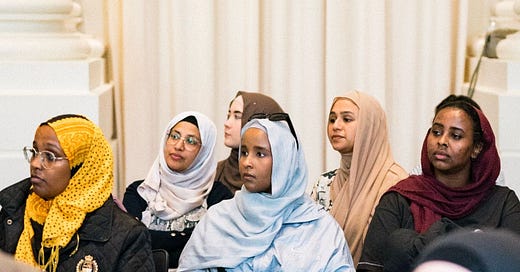on 'the international day for the Elimination of Racial Discrimination' and 'harmony day'
By Muslim Agenda
On 21 March 2025, as we mark the International Day for the Elimination of Racial Discrimination (IDERD) between cacophonies of ‘harmony’ and ‘social cohesion’, we must remember how we got here.
Between 1948 and 1994, apartheid South Africa, apartheid being an Afrikaans word that means ‘apartness’, a white minority government had enforced a legal system of racial segregation and discrimination that pitted citizens against each other categorised into four racial groups; black, Indian, coloured, and white. The white minority, comprising only 15 percent of South Africa’s population, enacted racist laws and violence to marginalise and repress the population, 80 percent of which was Black South Africans. One of these laws required Black South Africans to carry a ‘passbook’ or passport-type ID document, that police could check at any time. These would restrict the movement of Black South Africans, confining them into Black-only settlements and relegate them to the outskirts of communities. For years, many South Africans peacefully protested against these apartheid laws, including the passbook system.
On 21 March 1960, in the Black township of Sharpeville, a group called the Pan African Congress (PAC) organised for protesters to march to the local police station without their passes and ask to be arrested, in an act of civil disobedience. Thousands of South Africans made that march to the Sharpeville police station. As the day went by, police presence grew, including through the arrival of armoured vehicles and military jets. Without warning, the police opened fire on the unarmed crowd, firing over 700 bullets. The police killed 69 people and injured more than 180 people. May they rest in peace.
On 26 October 1966, the UN General Assembly proclaimed 21 March as the International Day for the Elimination of Racial Discrimination to be commemorated annually. It is a day we mourn the loss of lives lost to systemic, legalised, racial discrimination in an apartheid state. It is a day we show solidarity with people struggling with racial discrimination.
In our community, as Muslims and other marginalised minorities in Australia, it is a day for us to acknowledge the systems of oppression that prevail and persist in demonising our existence, our values, our beliefs. Distant in time and space, but is it not the same tools of oppression being used against us, as laws are enacted prohibiting criticism of the state of Israel or our rights to peacefully protest are diminished?
But 65 years on in Australia, we as a country barely have the framework to talk about racial discrimination, let alone the consensus to dismantle it. In 1999, Australia rebranded the International Day for the Elimination of Racial Discrimination (IDERD) to ‘Harmony Day’, a day for celebrating our multiculturalism and diversity, and in 2019 this was expanded to Harmony Week, altogether diminishing the essence of what this day was created to mark.
Instead of talking about the systems enforcing racial discrimination, including Islamophobia, we are drowned out by contrived conversations about harmony and multiculturalism. Even in talking about multiculturalism, the conversation has regressed over the last decade or so to ‘inclusion’ and the latest politically peddled rhetoric of maintaining ‘social cohesion’ when referencing Muslim communities. But who are the arbiters of social cohesion?
Why is it implied that our existence and access to equal rights is diminishing Australia’s cohesion? Who’s cohesion and comfort is being privileged over others?
Since October 7th, it has become increasingly evident that our communities were only ever provided permission to express their identities in ways that did not disrupt or disturb this ‘social cohesion’. We can have our communal iftars, invite others to celebrate our food and clothes, but we crossed the line in advocating against communities being killed on the other side of the world. Suddenly, we are disrupting the peace. Looking at public rhetoric in the last few years in media or political discourse, there is a strong correlation to the use of ‘social cohesion’ when referring to the role of Muslims and other minority communities. A stark and consistent reminder of our othering. A reminder that we must not unsettle the status quo even when we are bearing the brunt of it.
The idea of social cohesion is not a problem at all. We want to live in a community that is accepting and inclusive, one where we don’t just tolerate each other but celebrate our differences. However, social cohesion has become the go-to phrase to obfuscate conversations about real injustice. It has become clear that the idea seeks to placate the surge of voices that are not willing to talk about the real injustices facing our communities. In fact, it shows a resistance to addressing the elephant in the room. In Australia, this elephant has always been meaningful acknowledgement and action against racism. Australia has always found it easier to sweep the hard conversations under the rug, but this proliferates disunity instead of seeking to identify, label and address the root causes of racism.
As we look back to the origins of this day, we must also look forward in a way that honours all those who marched for justice and an end to racial discrimination 65 years ago. We must reclaim the true meaning of the International Day for the Elimination of Racial Discrimination. We must be brave in pursuing justice as we work to dismantle systems of discrimination.


